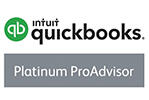Tax return threshold to rise in 2023/24
HMRC has announced a change in the threshold at which taxpayers need to complete a tax return. What's the new threshold, and what do you need to do if affected?

Currently, those with income exceeding £100,000 must submit a self-assessment tax return each year. This means that employees with this level of income, who pay all their taxes via PAYE, have to complete a tax return simply to give HMRC the same information it's already been given from payroll submissions and Form P60. From 2023/24, the threshold is increasing to £150,000; the reason for which is unclear as £150,000 does not correspond to any other income tax threshold, following the additional rate now starting at £125,140. However, it’s welcome news for those earning between £100,000 and £150,000.
The increase applies to the current tax year, so the last tax return that affected taxpayers need to file is the 2022/23 tax return which is due by 31 January 2024. HMRC will write to those who have no other reason to submit a tax return, e.g. to report untaxed income or a high income child benefit charge, to confirm that they have been removed from self-assessment.
Related Topics
-
CT61
-
Repayment thresholds for student finance confirmed
Repaying student finance can seem complicated, with a number of different plan types each having different repayment thresholds. The thresholds for the forthcoming year have just been confirmed. What’s the full story?
-
Advance assurance pilot confirmed
There have been a number of changes to how research and development tax credits are claimed in recent years. HMRC has now confirmed that a pilot of a new clearance procedure will begin later this year. What do we know so far?



 This website uses both its own and third-party cookies to analyze our services and navigation on our website in order to improve its contents (analytical purposes: measure visits and sources of web traffic). The legal basis is the consent of the user, except in the case of basic cookies, which are essential to navigate this website.
This website uses both its own and third-party cookies to analyze our services and navigation on our website in order to improve its contents (analytical purposes: measure visits and sources of web traffic). The legal basis is the consent of the user, except in the case of basic cookies, which are essential to navigate this website.